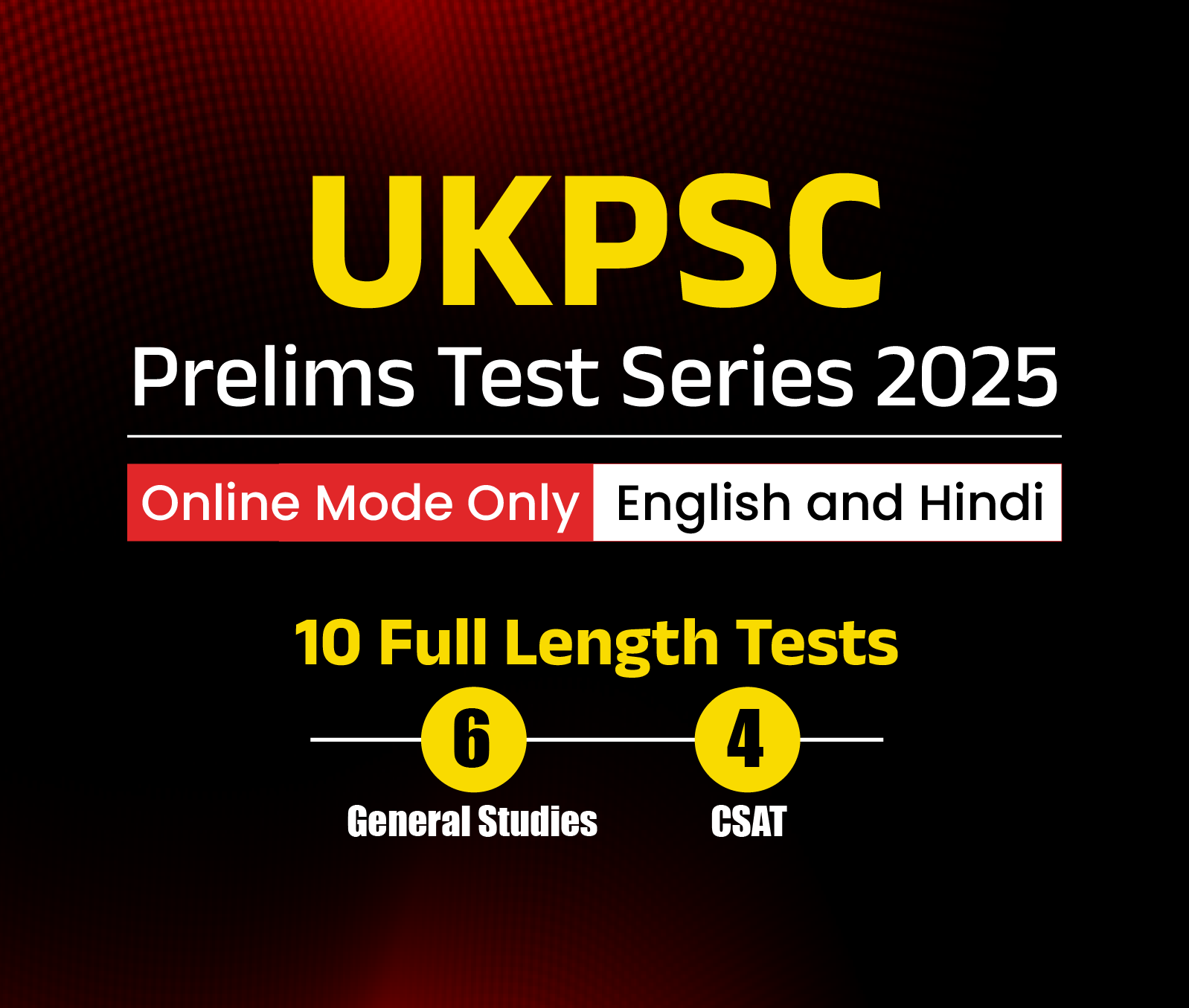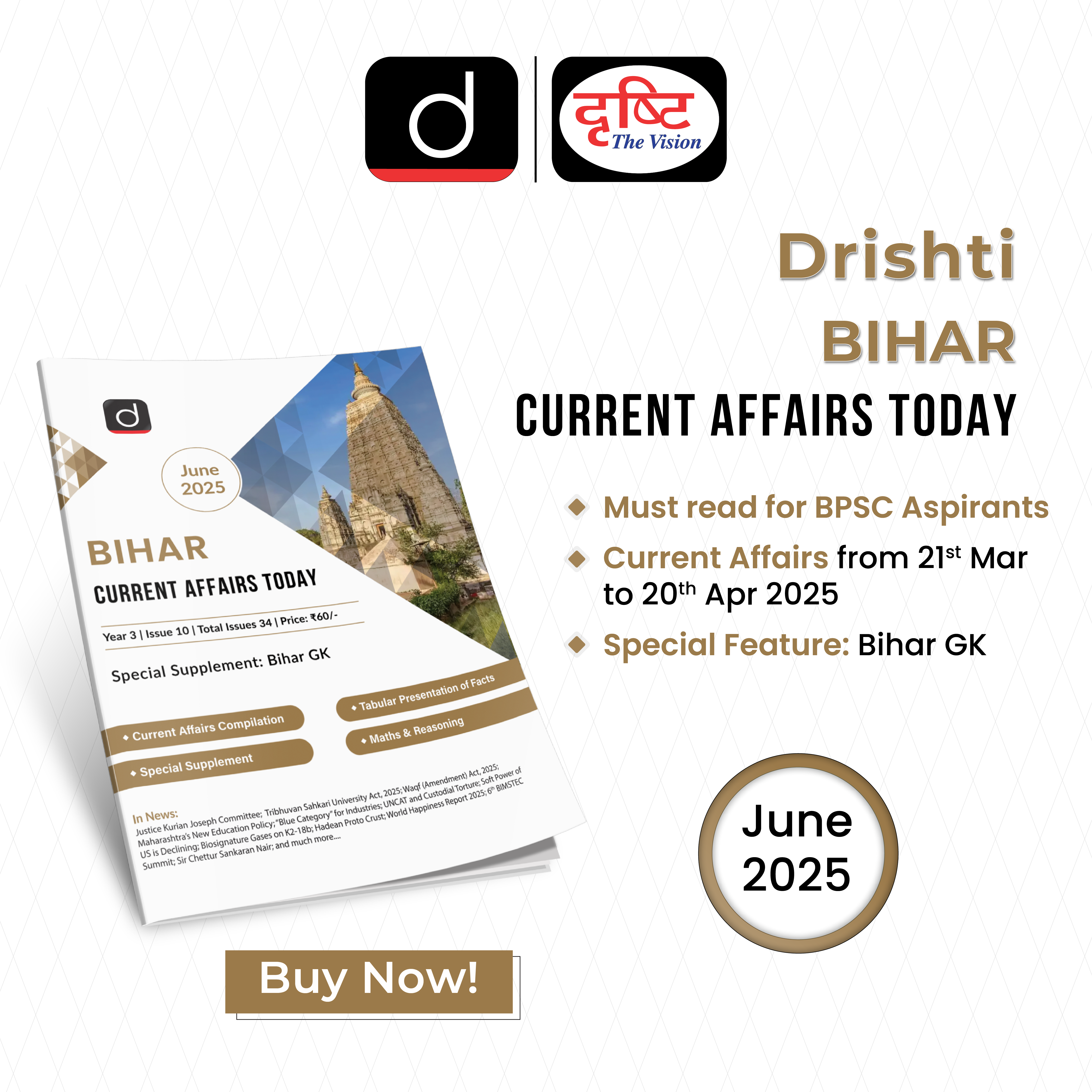Uttar Pradesh Switch to Hindi
UP- First State to Fully Adopt GeM Platform
Why in News?
Recently, Uttar Pradesh has become the first state in India to fully integrate the Government e-Marketplace (GeM) platform, enhancing transparency and efficiency in public procurement.
- This move is projected to save Rs 2,000 crore annually while fostering fair practices and empowering small businesses.
Key Points
- Prior tendering systems in Uttar Pradesh lacked uniformity and were vulnerable to misuse.
- GeM resolves these issues by enforcing standardized rules, thereby reducing the chances of violations or loopholes.
- The state government aims to scale up GeM usage across all state departments, ensuring compliance and enhancing accountability.
- Demonstrated Success:
- The Uttar Pradesh Building and Other Construction Workers Welfare Board used GeM to procure materials for 18 Atal Residential Schools.
- These schools, serving students from Class 6 to intermediate level, now offer exemplary learning environments, including support for children orphaned during the Covid-19 pandemic.
- The Uttar Pradesh Building and Other Construction Workers Welfare Board used GeM to procure materials for 18 Atal Residential Schools.
- Policy Reforms and Compliance:
- Strict guidelines: Policies prohibit practices such as offline contracts, price discovery bids, quantity-based bids, and unnecessary requests for samples during bid evaluations.
- All state departments must procure at least 25% of their annual goods and services through GeM, with penalties for non-compliance.
- Support for Small Enterprises: Relaxed tender eligibility criteria (e.g., turnover and past performance) create opportunities for micro and small enterprises (MSEs).
- Worker Welfare Provisions: Policies mandate minimum wages, Employee Provident Fund (EPF), and Employee State Insurance (ESI) benefits for outsourced employees.
- Service providers cannot arbitrarily replace outsourced employees after hiring, ensuring job stability and fairness.
- Anti-Collusion Measures: Collusion or bid manipulation incurs severe penalties, with provisions for reporting cases to the GeM team.
- Complaint Redressal Mechanism: High-level committees, chaired by the Uttar Pradesh Chief Secretary, review compliance-related grievances submitted via dedicated emails.
- Strict guidelines: Policies prohibit practices such as offline contracts, price discovery bids, quantity-based bids, and unnecessary requests for samples during bid evaluations.
- Alignment with National Initiatives:
- GeM adoption promotes the vision of "Digital India" by enhancing transparency and accountability in governance.
- The platform supports local suppliers and fosters fair competition, aligning with the "Make in India" initiative.
Government e-Marketplace (GeM) Platform
- GeM facilitates online procurement of common use Goods & Services required by various Government Departments / Organisations / PSUs.
- The initiative was launched in August 2016, by the Ministry of Commerce and Industry, Government of India.
- The current version of GeM, i.e., GeM 3.0 was launched on January 26, 2018.
- It provides the tools of e-bidding, reverse e-auction and demand aggregation to facilitate the government users, achieve the best value for their money and aims to enhance transparency, efficiency and speed in public procurement.
Uttar Pradesh Switch to Hindi
Krishna Janmabhoomi-Shahi Idgah Dispute
Why in News?
A Supreme Court bench headed by Chief Justice of India Sanjiv Khanna is set to hear the case on Krishna Janmabhoomi-Shahi Idgah dispute in Mathura.
- It is among the oldest temple-mosque conflicts in India, with Hindus seeking to reclaim places of worship they allege were converted into mosques during invasions by Muslim rulers.
Key Points
- Background of the Dispute:
- Mathura, considered the birthplace of Lord Krishna, had a temple built in 1618.
- The Hindu side alleges that the temple was demolished in 1670 by Mughal ruler Aurangzeb to construct the Shahi Idgah Mosque.
- The Hindu side claims the mosque contains Hindu religious symbols and features, including a lotus-shaped pillar and an image of the deity Sheshnag.
- Also contends that the mosque was built on a part of the 13.37-acre land belonging to the Shri Krishna Janmabhoomi Trust and has filed a suit seeking the mosque’s relocation.
- The Shahi Idgah Mosque Committee and the UP Sunni Central Waqf Board argue that the mosque does not stand on disputed land.
- Key Developments:
- Court-Monitored Survey:
- On 14th December 2023, the Allahabad High Court ordered a court-monitored survey of the Shahi Idgah Mosque.
- The court appointed a commissioner to oversee the survey, based on claims that signs of the site’s past as a Hindu temple exist on the mosque premises.
- Supreme Court Intervention:
- The Committee of Management, Trust Shahi Masjid Idgah, filed a petition challenging the High Court’s order for the survey.
- On 16th January 2024, the Supreme Court stayed the High Court’s order for the survey, citing vagueness in the Hindu side’s application.
- Court-Monitored Survey:
- Arguments:
- Hindu Side’s Position:
- They demanded that the High Court conduct an original trial, similar to the Babri Masjid-Ram Janmabhoomi case.
- The Hindu side has urged the Supreme Court to allow the High Court to determine the modalities for the commission survey.
- Mosque Committee’s Position:
- The committee argues that the High Court’s order for a survey is invalid as the suit is barred under the Places of Worship Act, 1991 which prevents changes to the character of religious places as of 15th August 1947.
- The committee has also challenged the High Court’s 26th May 2023, order transferring all dispute-related cases from the Mathura court to itself.
- Hindu Side’s Position:












%20MPPCS%202025%20Desktop%20E.jpg)
%20MPPCS%202025%20Mobile%20E%20(1).jpg)



.jpg)










.png)
.png)



 PCS Parikshan
PCS Parikshan


